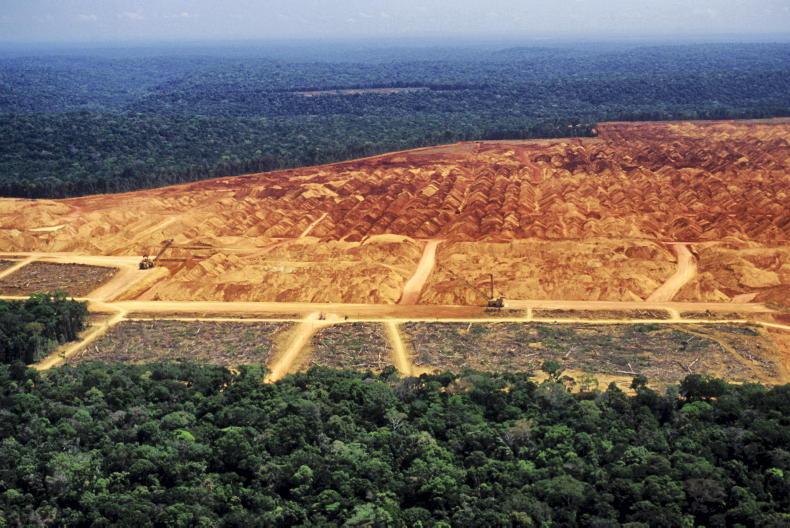As legislation winds its way through the EU institutions that will ban imports from land deforested after 31 December 2020, it will present a huge challenge to Brazil, the biggest supplier of beef outside the EU. The EU will not ban any specific countries as such, but will instead adopt a risk-based inspection approach with a ranking given to countries that supply the EU with beef.
Given Brazil’s clearance of rainforest in recent years, we can expect that it will be high on the list.
A study by Chain Reaction Risk (CRR), an organisation that undertakes sustainability risk analysis with a particular focus on tropical deforestation, shows that Brazil’s top three beef processors, JBS, Marfrig and Minerva, are unlikely to be compliant with the EU law.
A sample of 12,461 direct and 26,572 indirect suppliers of these key meatpackers, taken as part of this research, shows recent deforestation, making this product ineligible for the EU market. Direct suppliers are – as the name suggests – the supplier of cattle to the factory, while indirect suppliers are those that have been involved in the animals’ rearing process further back in the supply chain.
Using 2020 data, the report highlights that 37,147t, 52% of all EU beef imports, were from Brazil, as well as 28% or 87,344t of tanned or crust hides and skins imports, plus 30% or 12,029t of prepared leather imports.
Hides and leather are also covered by the EU legislation.
Who exports to the EU?
The CRR report provided a breakdown of the main exporters of Brazilian beef to the EU in 2020. JBS, the world’s largest meat processor, was on top with 17,363t, or 46% of the total Brazilian beef entering the EU, followed by Minerva with 10,356t or 28% and then Marfrig with 5,565t, just under 15% of the total.
With these three processors having 89% of the total trade, assessment of their cattle supply chains is vital in establishing compliance with the upcoming EU legislation.
CRR also analyses the supply base sample for each of the three factory groups.
It found that JBS had 6,556 direct suppliers and 12,402 indirect suppliers linked to the deforested areas out of its estimated 50,000 total supply base.
Minerva has over 6,000 suppliers, of which CRR estimates 2,820 are directly linked and 7,038 indirectly linked, while Marfrig has 15,000 registered in the Amazon region with 3,085 directly linked and 7,132 indirectly linked.
Could Brazil adapt to new EU regulations?
CRR examined this issue and concluded that compliance with the EU Deforestation Regulation is indeed possible using the existing traceability system that is in place.
It should be possible for exporters to select cattle that comply with EU deforestation legislation and use the other cattle in different export markets
This traceability system, which covers the end of an animal’s life as opposed to the lifetime traceability required in the EU, is considered adequate for current imports of beef to the EU.
Given that the EU is a small fraction of the total export market for Brazilian beef, which will exceed 2m tonnes this year, it should be possible for exporters to select cattle that comply with EU deforestation legislation and use the other cattle in different export markets.
This is not dissimilar to the practice of selecting non hormone-fed cattle in the US for exporting beef to the EU and exporting the remaining beef treated with hormones to other global markets.
The bottom line is that while compliance with EU deforestation legislation will take effort, especially by Brazil, it can be done.
It has been able to satisfy EU standards on traceability and this is the tool that can be used to show compliance with not sourcing cattle from deforested areas.
However, the issue of indirect supplies will be more difficult, as the system is not based on full life traceability, so the question remains – how does the exporter know what happened to animals prior to moving onto the farm from which they came to the factory?
As for the Mercosur trade deal, both Argentina and Uruguay won’t have a major issue with this and the EU are invested in making the deal happen. We can expect that a workaround will be found on the deforestation legislation, just as it was on wider traceability.






 This is a subscriber-only article
This is a subscriber-only article









SHARING OPTIONS: